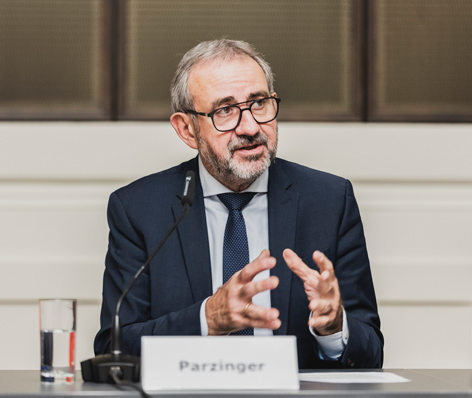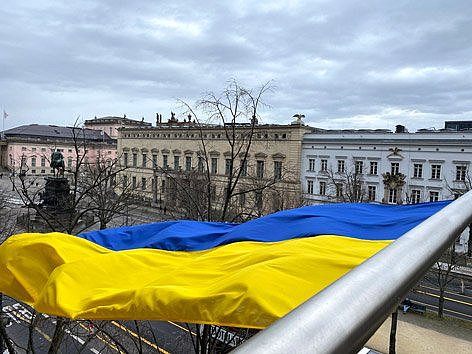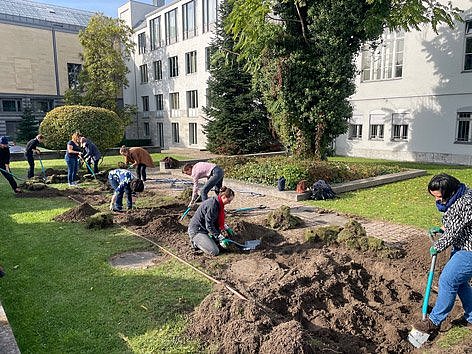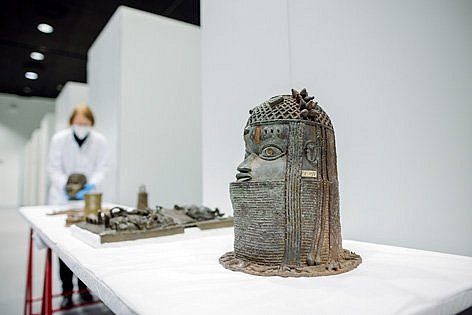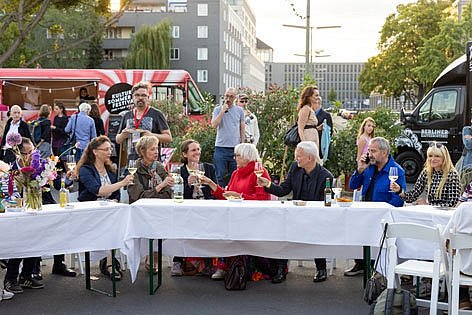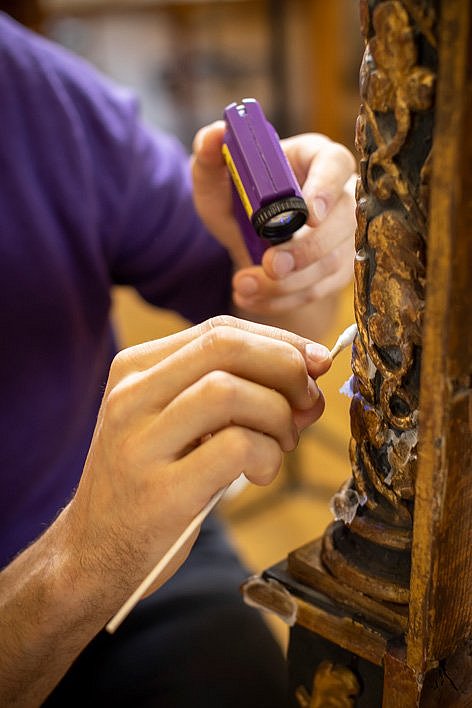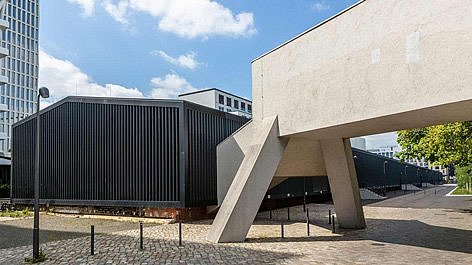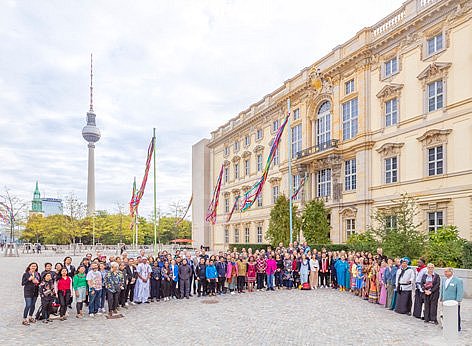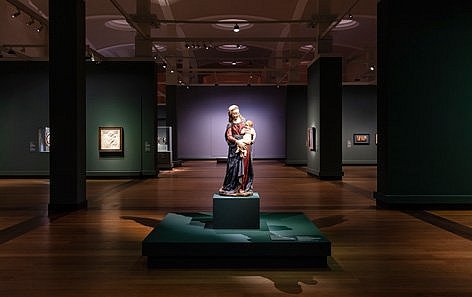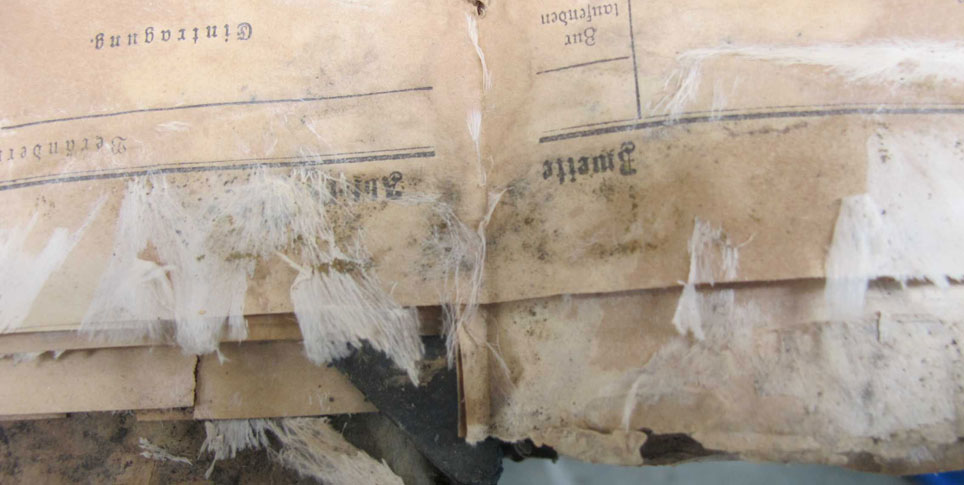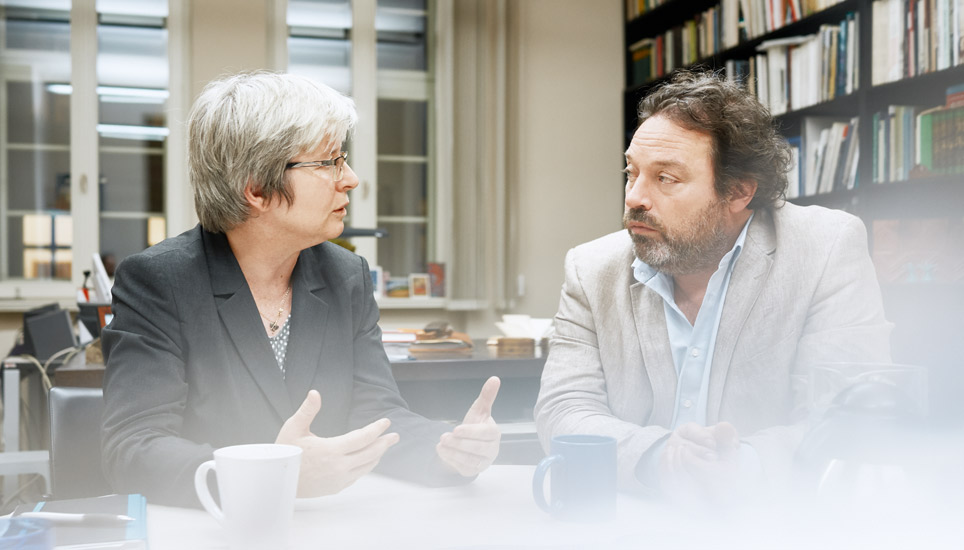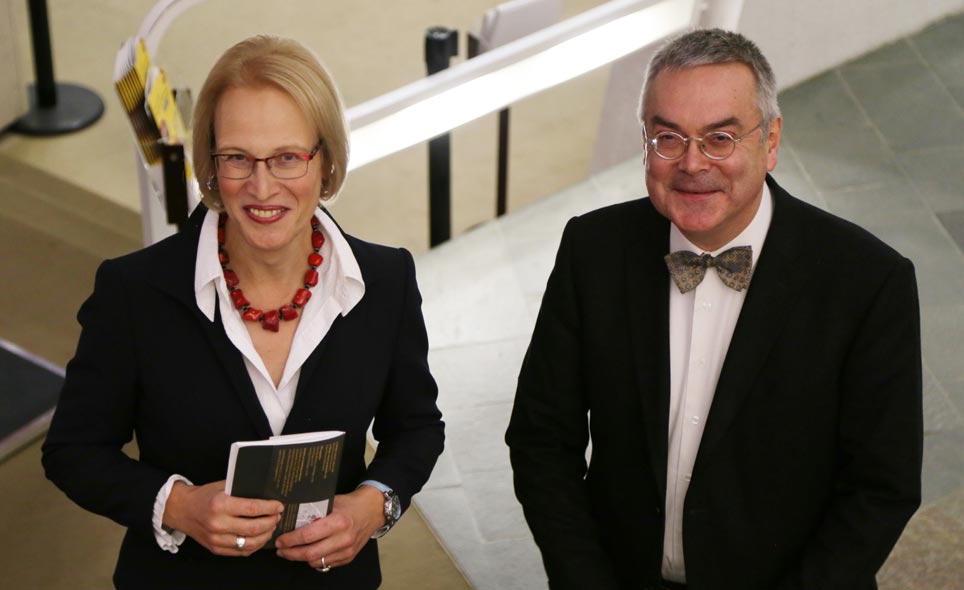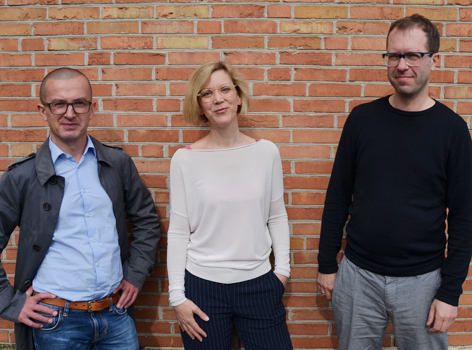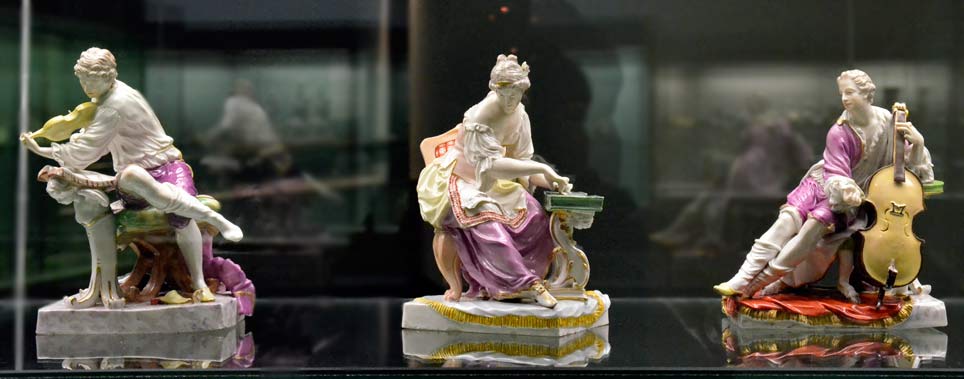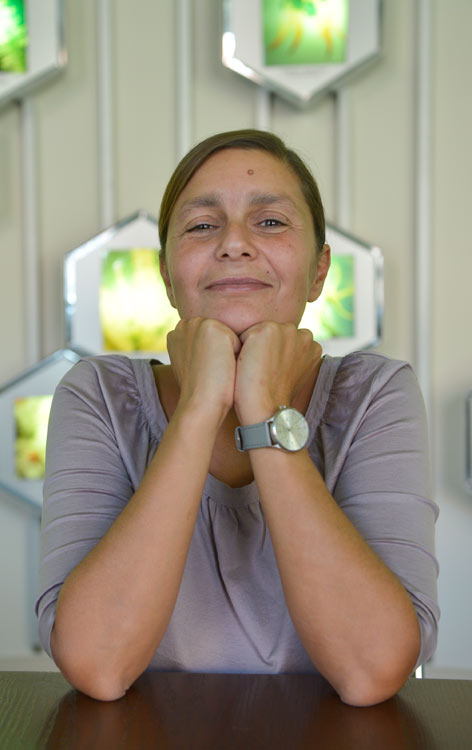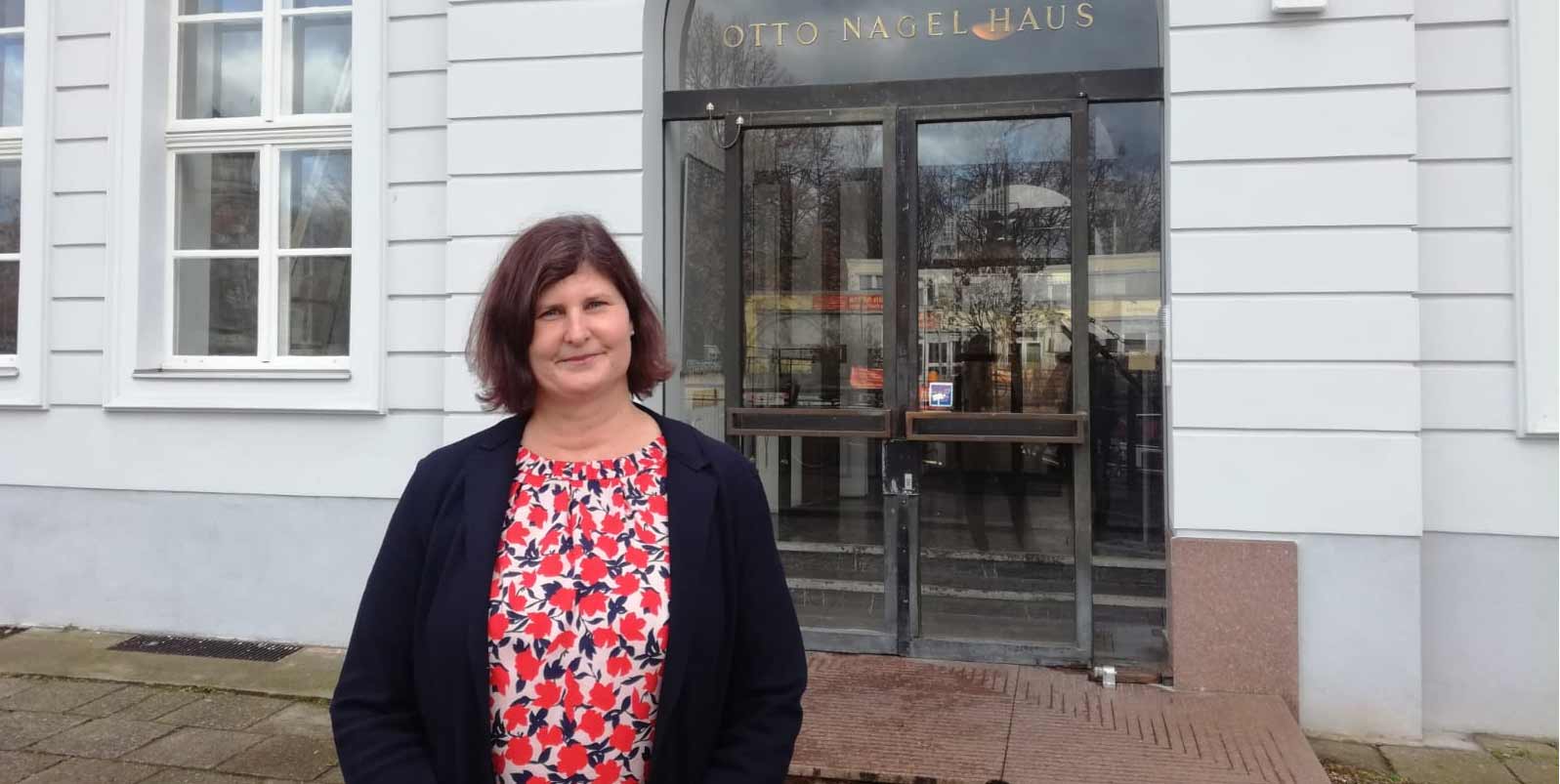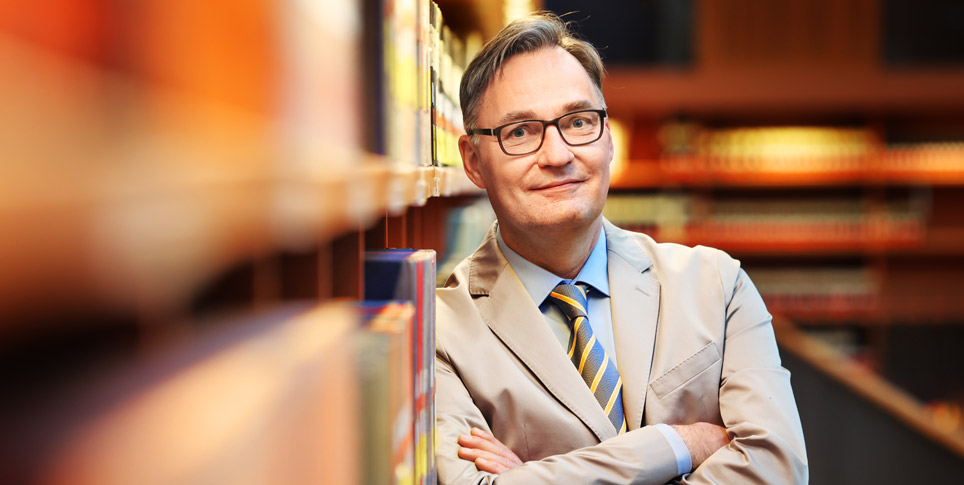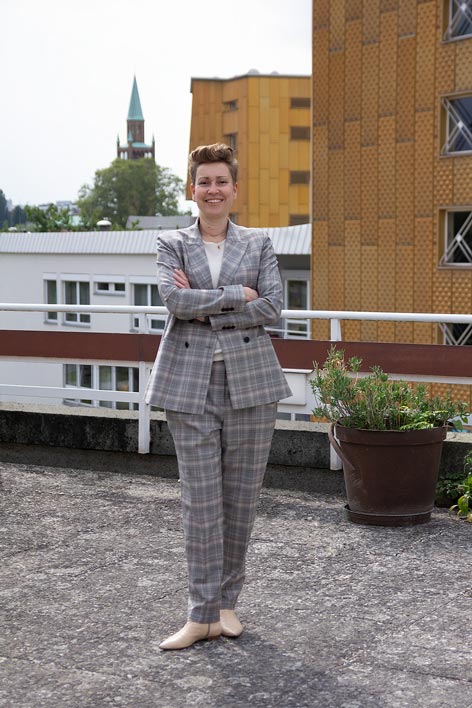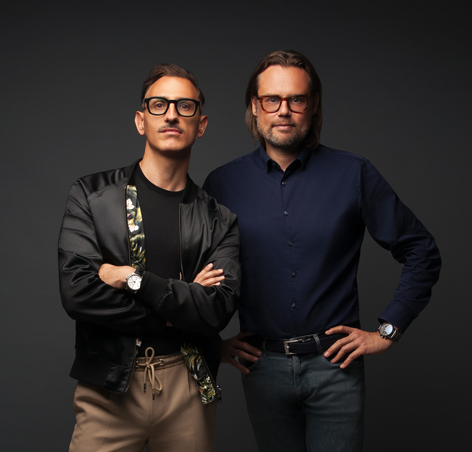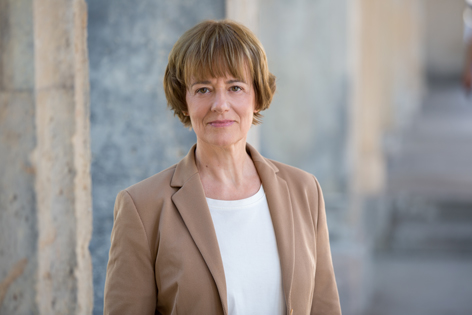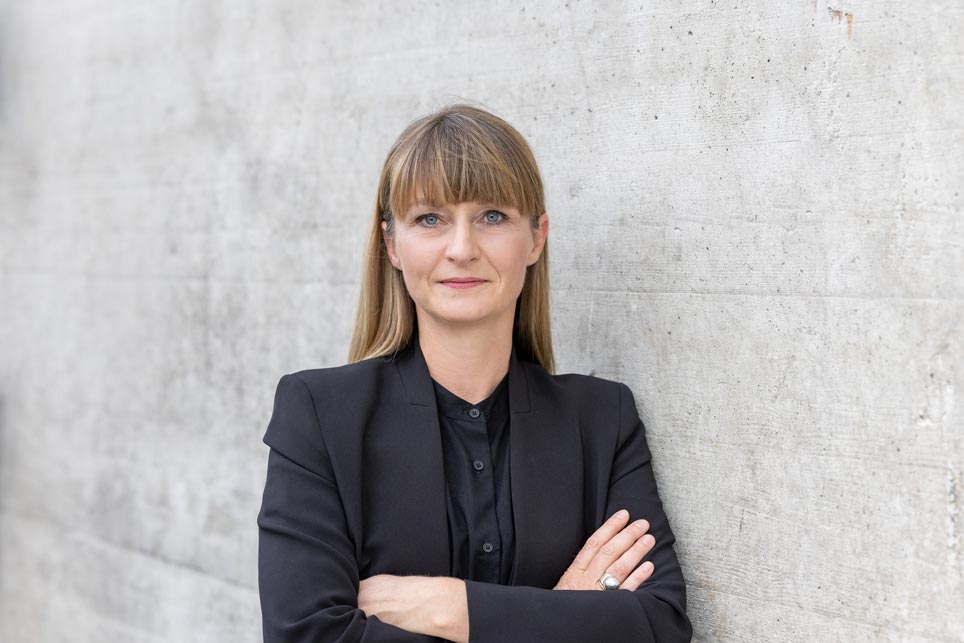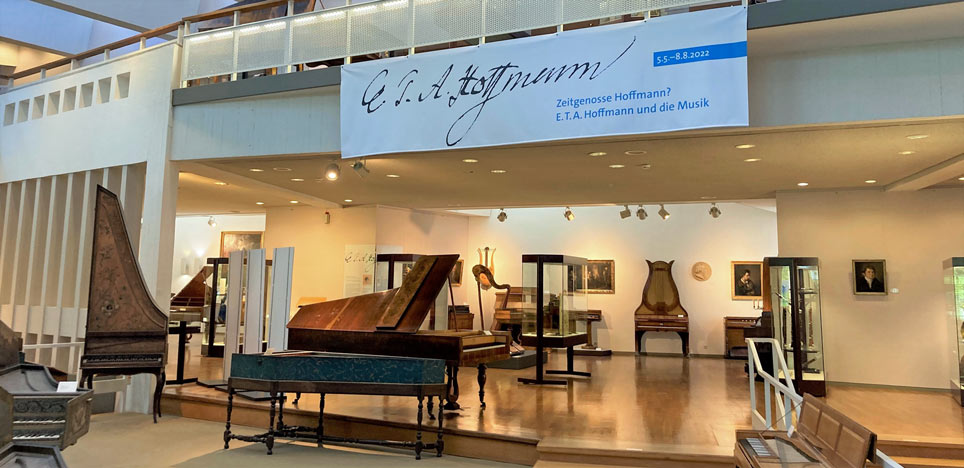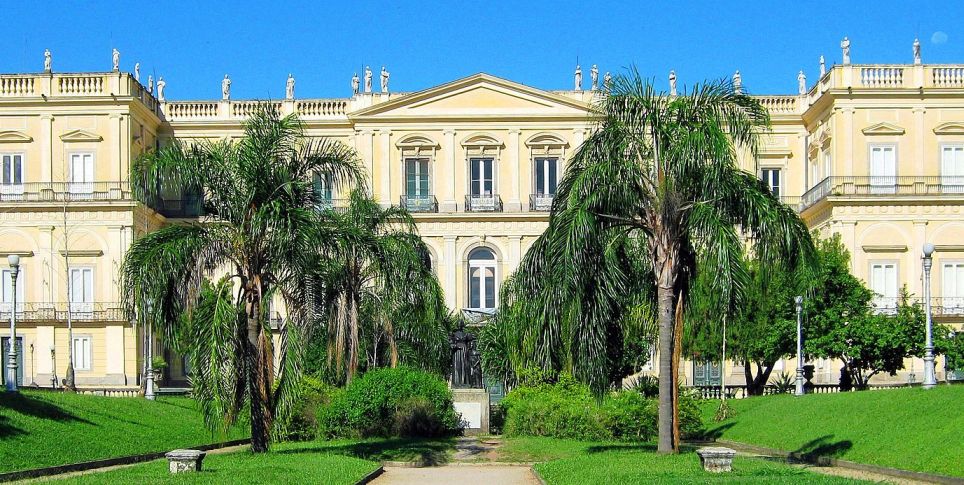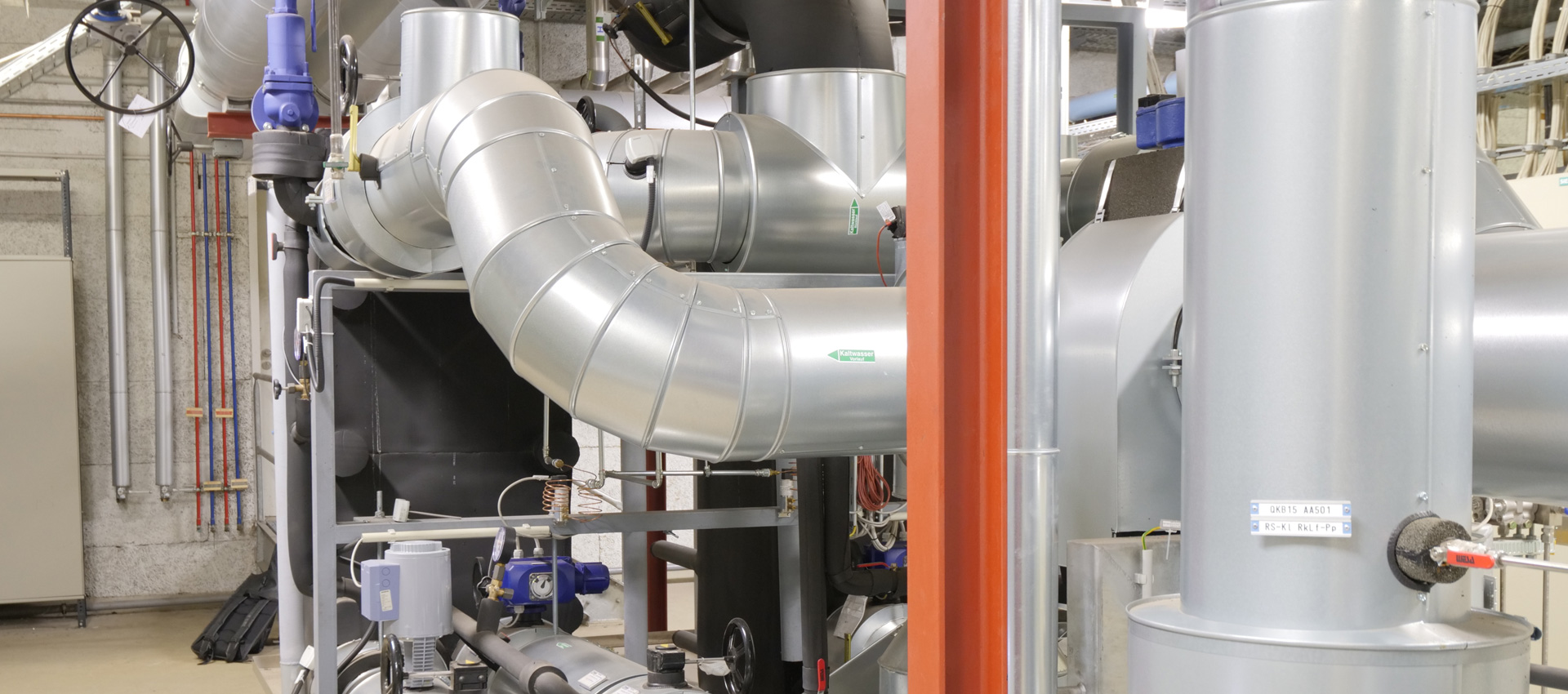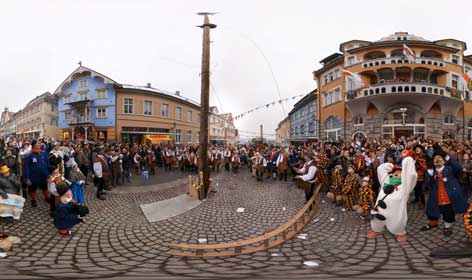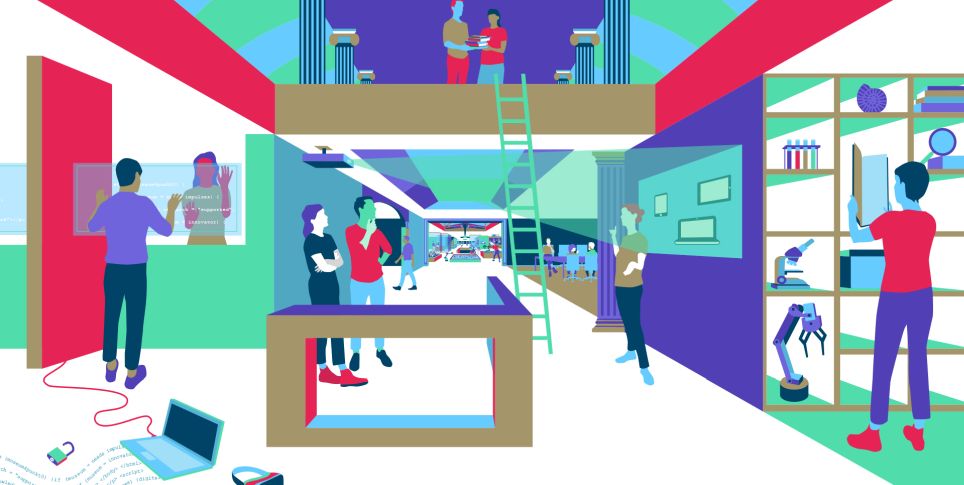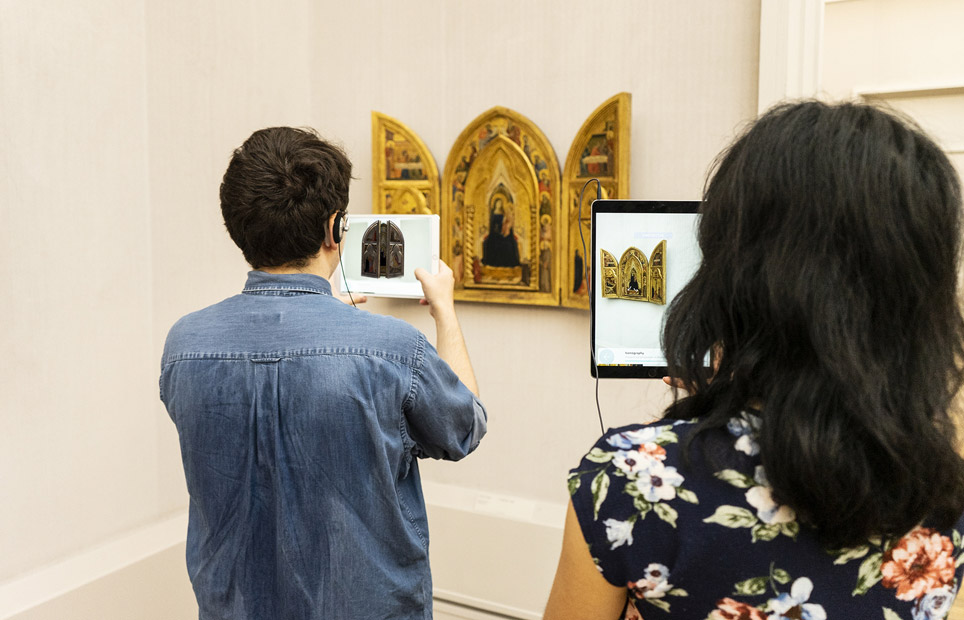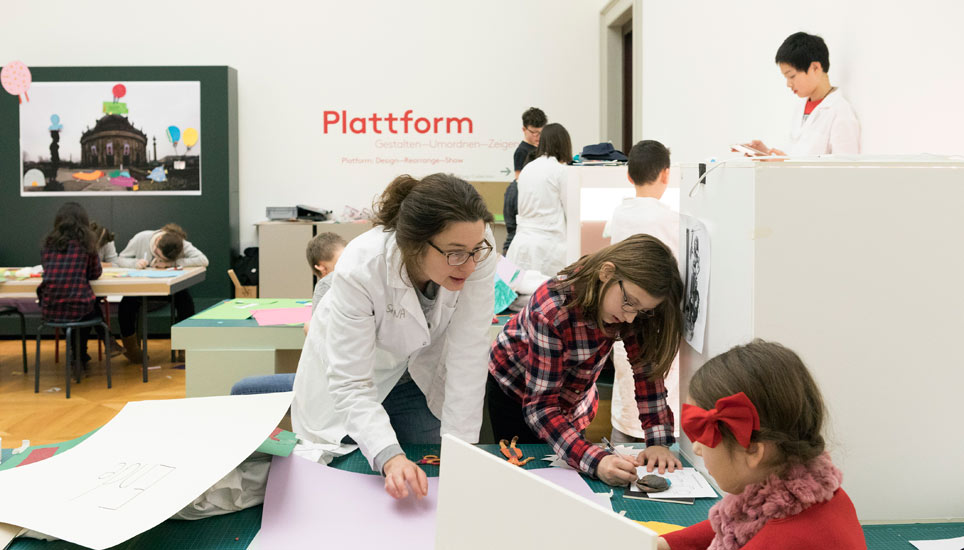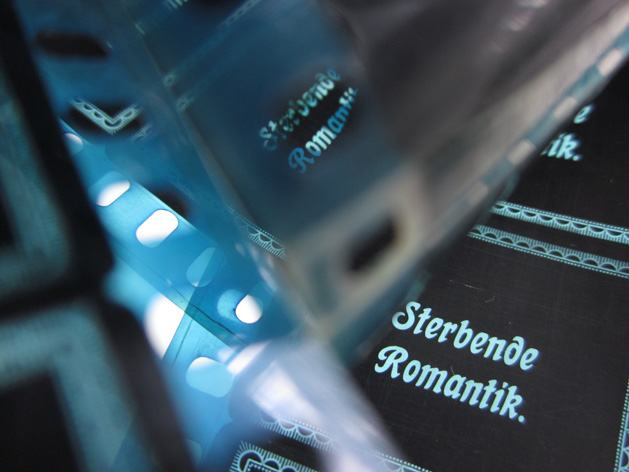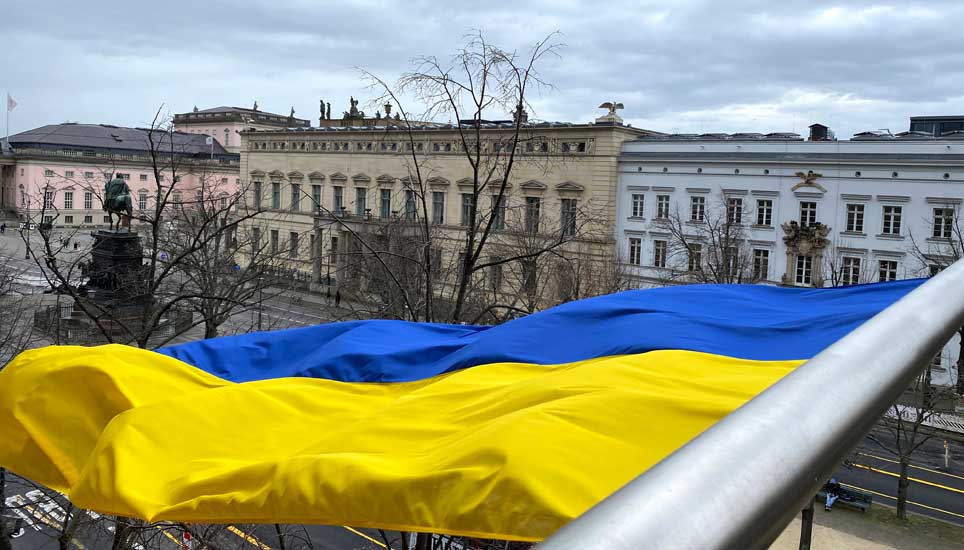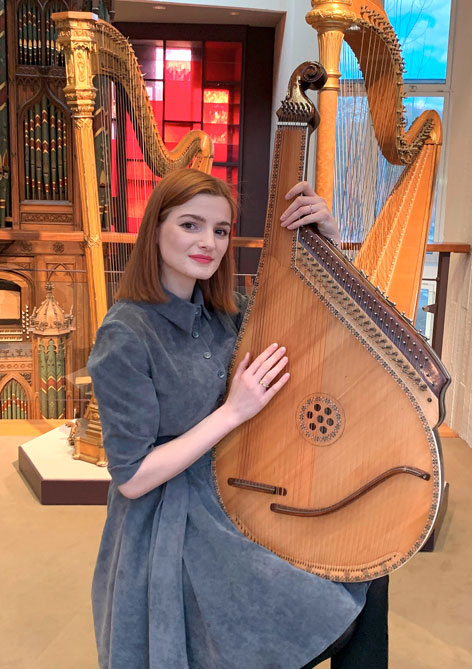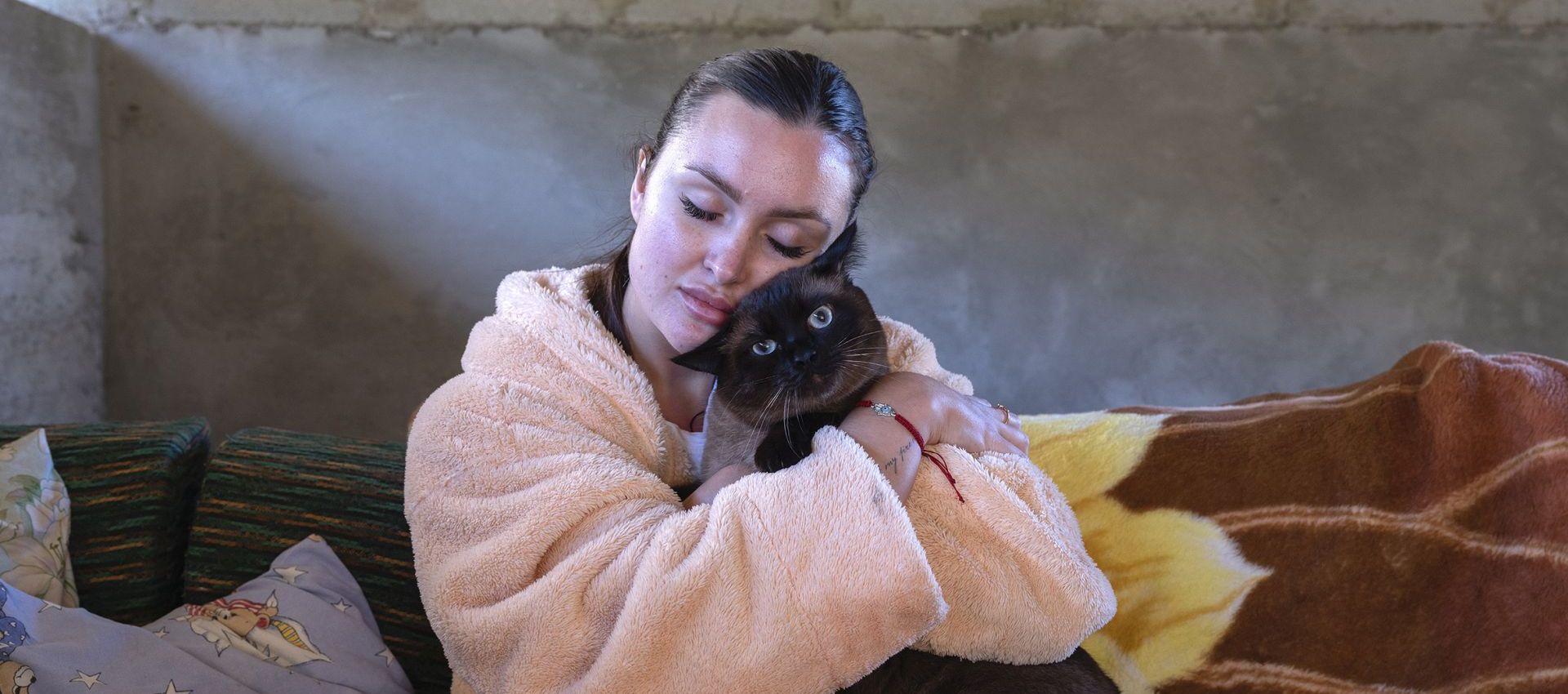An end-of-the-year chat with Hermann Parzinger about the Ukrainian flag on the Villa von der Heydt, the green Kulturforum, and the whole world on one island.
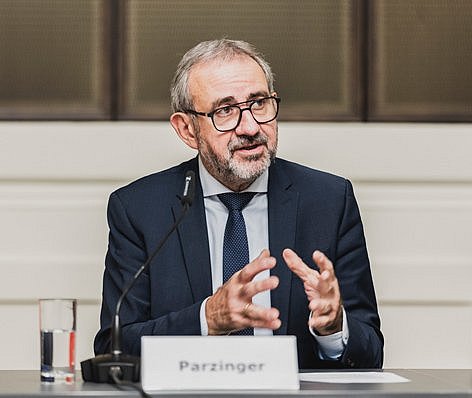
One day before St. Nicholas Day, the Foundation Board of the SPK cleared the way for a reform of the largest German cultural institution. There will be greater autonomy, greater agility, and greater joint responsibility – those are the central messages of the resolution adopted by the Board.
A consequential year is drawing to a close for President Hermann Parzinger, for a number of different reasons. In the interview below, he discusses lost illusions, new hopes, and gratifying devotion.
Photo: SPK President Hermann Parzinger. © SPK/photothek.de/Florian Gaertner
Mr. Parzinger, what do you think of first when you look back at the year 2022?
I think of the Ukrainian flag, which flew in March, for the first time, over our museums, in front of the Staatsbibliothek (Berlin State Library) and at the Villa von der Heydt. The Russian war of aggression against Ukraine was the dominant theme this year, and it marked a historical turning point, as the Chancellor so aptly put it. The Foundation immediately showed its solidarity with Ukrainian institutions of culture and learning; we offered to help them help themselves, so that works of art, books, and archive materials there could be brought to safety. We set up scholarships for Ukrainian academics and researchers who had to flee their homeland. It is wonderful to see how these people have been welcomed in our own homes, but at the same time depressing when you consider that their hopes of returning soon are still unfulfilled.
In addition to this human and cultural tragedy, the SPK has naturally also been dealing with the consequences of the war here: the energy and gas crisis is causing massive additional costs for us, too, even though we are trying to reduce our energy needs by 20 percent everywhere, without jeopardizing cultural goods. We are all still getting used to the 19-degree Celsius (66.2 degrees Fahrenheit) room temperature in our offices.
You were always proud of German-Russian cultural relations. Many things that were not possible at the political level were nevertheless feasible in cultural relations, you said. Is everything over and done with now?
German-Russian cultural ties have now been wrecked for years into the future, if not decades, I am afraid we have to say in all frankness. Although personal, private connections may exist between individual scholars in the two countries, an incredible amount has been ruined, and the dialogue with state institutions has become inconceivable. Research partnerships that were built up over decades now lie in tatters. That is a bitter realization for me. But I would also like to take the opportunity to say that our door is open to Russian and Belarusian scholars, if they can no longer live under the dictatorial conditions of their countries and want to leave their countries. We are in solidarity with them as well.
What has changed in the SPK this year?
A lot! We have become quite a bit more modern. Topics such as sustainability and diversity are no longer just bullet points. Now our members of staff have taken these issues to heart and are moving them forward. I am also very pleased that we have finally taken a decisive step in a different area, by transferring ownership of the Benin Bronzes in our collections back to Nigeria. This is the beginning of what will hopefully continue to be a productive collaboration and, in my view, it is a successful example of a process that involves all of the participants. And this year, together with the Philharmonie and the Stiftung St. Matthäus (St. Matthew's Foundation), we brought the Kulturforum back to life, as it were, and turned it into an “oasis of green,” complete with a big picnic table arranged by the Neue Nationalgalerie in Sigismundstrasse – which has probably never seen such a hubbub before!
And now, just before Christmas, there is the reform, too.
Exactly! The Foundation Board has made it clear that the institutions will obtain greater autonomy and greater individual responsibility while at the same time taking on more responsibility for the Foundation as a whole. This is a very important piece of news, especially for the museums, because now, Museumsinsel (Museum Island), the Kulturforum and the sites in Berlin-Dahlem are doing more than offering visitors a great program; now, they also have to organize effective local administration. I have high hopes for this development, and for the fact that we will have a Board of Directors in which leaders of other institutions will assume responsibility for certain cross-sectional subjects of concern to everyone, and do so on behalf of the entire Foundation. We are organizing our future together; the SPK will remain intact as a group, and we will demonstrate quite clearly the added benefit of that.
Will the Humboldt Forum be integrated into the SPK?
We are nowhere near that point yet. There are interface issues with the Humboldt Forum Foundation in the Berliner Schloss (Berlin Palace) that have to be resolved. We are going to discuss them amicably with those responsible there.
What especially provoked your ire this year?
The methods used by the climate protesters in the Gemäldegalerie (Old Master Paintings), even though the goals are of course entirely understandable, and then the actions of the copycat at the Alte Nationalgalerie. Intentionally damaging works of art is completely unacceptable to me.
And what were you especially pleased with?
I am still immensely pleased that the federal government and the city of Berlin, working together, managed to acquire Hamburger Bahnhof and the Rieckhallen. That puts one of Europe’s most important homes of contemporary art on a secure footing for the long term. And of course that Axel Marx donated all of the works by Joseph Beuys in his collection to the SPK – an outstanding gesture that made me even more happy. It is also nice that the Humboldt Forum is now completely on line – now you really can see the world on a single island! A whole new cultural quarter has arisen right in the heart of Berlin; where else in the world does that happen?
It is also fantastic that our exhibitions – from Donatello to Erich Dieckmann, or from Schliemann to Schadow – have led to a big rise in visitor numbers. We have reached pre-Covid levels. Museumsinsel has once more become the quintessential hot spot; cultural tourism is working again. The President, especially, is happy about that, because ultimately, it is our visitors that we are working for. I can only advise everyone to take the opportunity again, now over Christmas, to experience the two outstanding sculptors: Donatello in the Gemäldegalerie and Schadow at the Alte Nationalgalerie. An exhibition with sculptures always has a special fascination, because viewing works from every side is of course only possible to a certain extent in a catalog.
